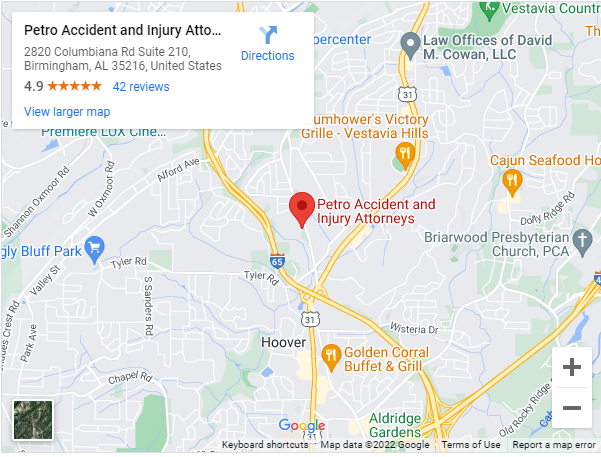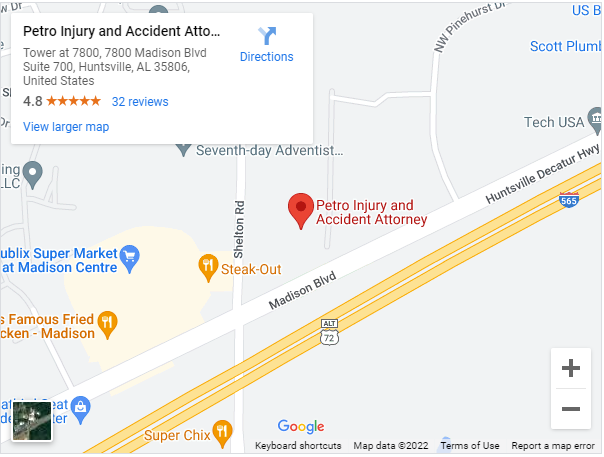Social media can make or break your claim. Don’t fret, we’re here to guide you!
Step into the world of legal investigation in Alabama, where social media plays a big role. In this digital age, social media evidence in Alabama can be overwhelming. It often mixes with many legal rules, privacy rights, and admissibility issues.
This article delves into the impact of social media on personal injury cases. It focuses on the key insights for account holders in Alabama.
Quick Summary:
- Social media posts can compromise your privacy and have the potential to hurt your personal injury claim. Remain cautious about online sharing during the claims process.
- Contradictions between what is claimed in your case and what is shown in your posts can affect the validity of your claim.
- Consistency is critical; any post that deviates from your stated injuries could undermine your credibility and case.
- Deleted posts aren’t necessarily gone; insurance companies and opposing lawyers can retrieve this information and use it against you.
- Social media activities can lead to denial of compensation in injury cases. They can reveal differences in your story, physical activities that contradict your claims, or signs of improved emotional health.
- Alabama’s contributory negligence laws can negatively impact your claim if your social media posts suggest any negligence on your part.
- Some do’s and don’ts for social media must be followed during the claim process. This includes keeping privacy settings, not talking about the case online, and not deleting suspect posts.
How Your Social Media Activity Can Adversely Impact Your Personal Injury Claim
It’s important to be careful about what you put on social media when you’re hurt. Insurance companies and lawyers might use what you post to affect your injury claim and how much money you get.
Preserving Your Privacy
Unfortunately, your privacy rights can be compromised in the landscape of social media. Harmless posts or pictures can be misconstrued. They can be used against you in personal injury cases. Specific activities, personal achievements or family events can be interpreted in a manner that can weaken your claims.
During the claims process, remaining cautious about online sharing is crucial for your privacy protection and maintaining the integrity of your claim.
The Power of Contradiction
Your innocent post can unintentionally contradict the claims made in your personal injury case. An image of you participating in a marathon or at a party with friends might create doubts about the actual severity of your injuries. Your opponents can leverage these posts to question the extent of your debilitating injuries affecting your chance at fair recompense.
This underscores the importance of adhering to the prescribed medical treatments and being honest about your injuries to your attorney, who can then provide comprehensive and informed representation.
Importance of Consistency
Being consistent is key in legal proceedings, especially personal injury claims. An innocuous daily life update could potentially be perceived as inconsistent with the injuries you’ve claimed to suffer from. Therefore, a simple tweet or post can undermine your case by challenging your credibility.
To avoid any unfavorable outcomes, being mindful of your posts on social media is extremely important, as is refraining from posting anything ambiguous.
Social Media Surveillance
In our digital age, social media surveillance is increasingly prevalent. Insurance companies and defense lawyers may monitor your online presence to glean information about your daily activities. Posts taken out of context can subsequently be used as evidence against you.
Protecting your privacy should be a priority. Checking the privacy settings in your social media can limit access to your virtual life while your claim is being processed.
Deleted Content isn’t Gone Content
Deleting a post does not necessarily mean that it is wiped from existence. Deleted content can be retrieved, and the associated metadata can be used against you as evidence in court. So, it’s wise to keep in mind that what you share online might always be retrievable in one way or another. If you decide to delete a potentially damaging post, informing your attorney is a prudent step to avail accurate legal advice and informed representation.
Why Social Media Posts Can Lead to Denial of Compensation in Personal Injury Cases
Your social media activities can significantly influence the evaluation and verdict on your personal injury claims. Here are several ways your posts could potentially lead to denial of compensation:
- Discrepancies in Your Narrative: If you’ve detailed your accident or injuries and your social media posts contradict these accounts, it can raise serious doubts about the credibility and reliability of your claims.
- Physical Activities: Posting photos or updates about engaging in physical activities while claiming severe injuries can undermine your case. For instance, claiming chronic back pain while sharing photos of you hiking can lead adjusters to question the validity of your claims.
- Emotional Health Depictions: Posts that depict you in good spirits can conflict with claims of emotional distress or mental anguish, leading to skepticism about your claimed damages.
- Pain and Suffering: Images or posts showing social outings or enjoyment can be used to juxtapose your claims of ‘pain and suffering’. These can be interpreted as you not being significantly impacted by your injuries.
- Confidential Information: Sharing legal or medical information related to your case can also work against you. Confidentiality is crucial in legal proceedings, and any breach could lead to negative implications.
- Changes in Employment or Financial Status: Posts reflecting a change in your job or financial status may lead insurers to challenge your claim. For example, if you claim loss of income but then post about a new job, it may hamper your claims.
- Location check-ins: Checking in at various locations can give adjusters an insight into your daily routine, and if it contradicts with your claimed injuries, it might lead to a denial of compensation.
Alabama’s Contributory Negligence Laws
In legal systems like Alabama, your seemingly harmless posts can suggest negligence. This can hurt your case. Alabama follows the contributory negligence doctrine. If you’re 1% at fault for the accident, your right to compensation can be affected.
So, sharing accident details on social media can hurt you. This includes admitting any fault, even if minor. A brief post implying you’re doing well may hurt your case. It may hide the evidence of your sustained injury and lead to a denial of your claim.
Social Media Do’s and Don’ts During the Case
When navigating a personal injury claim, being aware of how your social media activity can impact your case is crucial. Here are some do’s and don’ts to keep in mind to safeguard your claim:
Do’s
- Set Your Accounts to Private: To limit the access others have to your posts, make sure your social media accounts are set to private.
- Turn Off Location Services: Avoid sharing your location to prevent any potential discrepancies in your case.
- Review Your ‘Friends’ Lists: Ensure you recognize everyone you’re connected with, as insurance adjusters or investigators might try to access your posts.
- Consult with Your Attorney: Before posting anything related to your case or injuries, consult your attorney for their professional advice.
Don’ts
- Don’t Discuss Your Case: Refrain from mentioning your case details on social media. A seemingly harmless post might lead to misinterpretations that can harm your claim.
- Don’t Share Medical Information: Also avoid sharing information about doctor’s visits, medications, treatments, or your recovery process.
- Don’t Post Physical Activities: Images or updates on you engaging in activities could contradict your claim of being injured.
- Don’t Accept New Friend Requests: Be cautious about accepting new friend requests, especially from people you don’t know personally. They could be investigators looking to gain information about your claim.
- Don’t Delete Posts: Deleting posts after an accident can be seen as trying to hide evidence, which can negatively impact your credibility.
Do Not Underestimate The Impact of Social Media on Personal Injury Cases: We Can Help You!
Social media’s impact on personal injury claims can’t be underestimated. Seemingly innocent posts can negatively influence your case and may lead to reduced compensation or even claim denial. This is why legal guidance is necessary.
At Petro Accident and Injury Attorneys, we understand the intricacies of personal injury law. We also know that social media can be tricky when you’re hurt. We’ve helped many people with different types of injuries, which makes us particularly suited to help navigate these challenges.
Our areas of practice extend beyond providing guidance on the impact of social media on personal injury cases. We can also help in cases pertaining to Dog Bites, Injuries to Children, and Nursing Home Abuse among others.
So, if you need help with an Alabama Personal Injury Claim, reach out to Petro Accident and Injury Attorneys. With us on your side, you can confidently navigate the claim process. You can avoid social media pitfalls. Let us put our extensive experience work for you!




